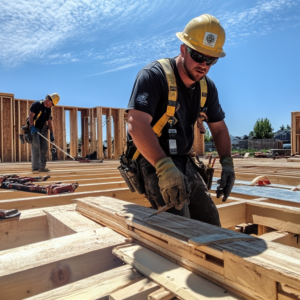Dive Brief:
- Office valuations in New York City are forecasted to decline by as much as 39% by 2029 due to remote work trends, according to a recent report from professors at the NYU Stern School of Business and Columbia University Business School.
- That plunge represents a $453 billion valuation drop for New York City office buildings, while similar declines could occur in other U.S. cities, the report noted. What the authors call an “office real estate apocalypse” also will have negative implications for nearby businesses and local public finances.
- The authors said that lower quality, less expensive office buildings will experience much more volatile swings in valuation, while higher quality office buildings are somewhat buffered against the downward trend.
Dive Insight:
The COVID-19 pandemic accelerated the push for remote work, which in turn, decreased office space demand. Physical occupancy, or the amount of people working in an office building on any given day, fell from 95% in February 2020 to about 47% last month in major U.S. office markets, according to the report.
In a worrisome sign for office markets, the study estimates the trend toward more remote work likely will persist.
To determine this, the research studied office REITS focused on New York City. The model indicated “office REIT investors believe remote-work practice to be long-lasting,” according to the report. Many U.S. corporations have announced permanent remote or hybrid work arrangements, and several have begun to shrink their physical footprint.
That was the basis for the report’s forecast of valuations dropping 39% by 2029.
The plunge will also affect the city’s business and retail properties, which has important implications for local public finances, according to the report.
For example, the share of real estate taxes in New York City’s budget was 53% in 2020, 24% of which came from office and retail property taxes. Given budget balance requirements, a drop in office and retail valuations would need to be made up for by either raising tax rates or cutting government spending. Either of these options would further negatively impact the attractiveness of the city as a place of residence and work, the study said.
Nevertheless, the work-from-home movement could spark new trends in office construction and renovation, according to the report. Declining office occupancy has prompted discussions on the merits of renovations of class-B or class-C office buildings into class-A structures or conversions into alternative uses such as multifamily.
Renovation projects make sense due to the higher value for high-quality properties and the expected slowdown of new office construction for years to come. Conversion projects make sense due to both a lack of affordable housing in large cities. Older buildings also tend to be more amenable to apartment conversion, according to the report.
Still, the study mentions there may be a role for local governments to play in order to subsidize the conversion of office buildings to housing.
”Future research should explore these implications and study the role for federal fiscal policy,” according to the report.



Responses